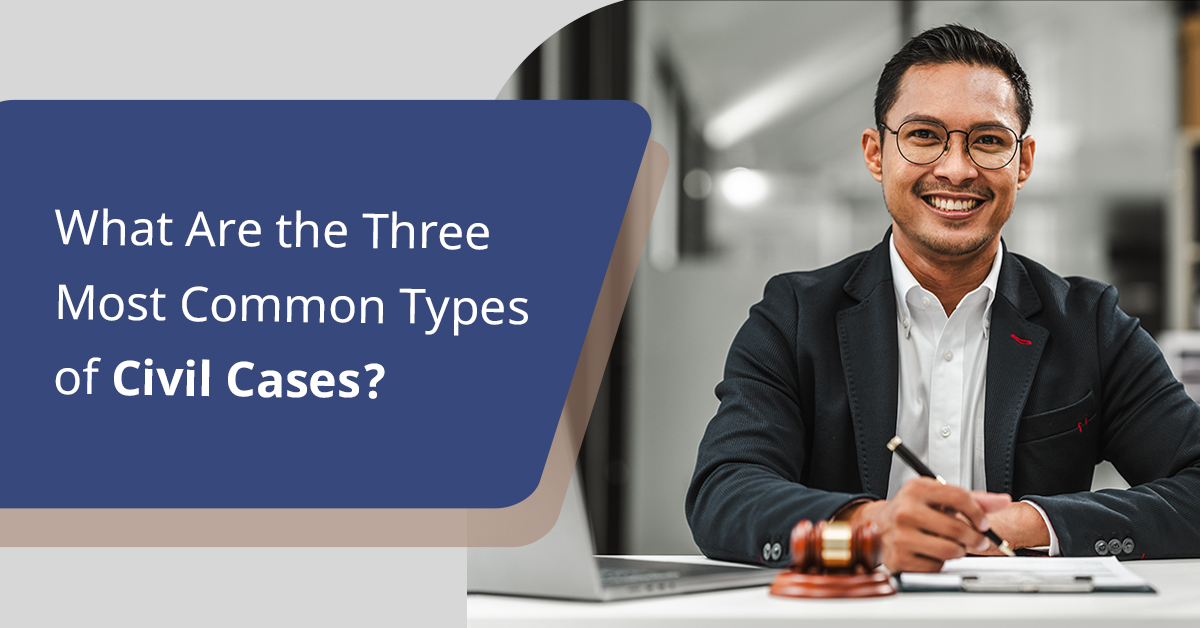Civil litigation encompasses a wide array of legal disputes, but certain types are more prevalent due to their frequency in everyday life and business. The three most common types of civil litigation are personal injury claims, contract disputes, and property disputes. Each type involves distinct legal principles and procedures, but they share the common goal of resolving disputes and providing remedies for the aggrieved parties.
1. Personal Injury Claims
Personal injury claims are one of the most common types of civil litigation. These cases arise when an individual suffers harm due to the negligence or intentional actions of another party. Common examples include car accidents, slip and fall incidents, medical malpractice, and product liability cases.
Legal Process and Key Considerations:
- Establishing Liability: The plaintiff must prove that the defendant owed a duty of care, breached that duty, and caused the injury as a result.
- Damages: The plaintiff must demonstrate the extent of their injuries and the associated economic and non-economic damages. This can include medical bills, lost wages, pain and suffering, and emotional distress.
- Statute of Limitations: Personal injury claims are subject to strict filing deadlines. In many jurisdictions, the statute of limitations for filing a personal injury lawsuit is typically two to three years from the date of the injury.
- Settlement Negotiations: Many personal injury cases are settled out of court through negotiations or mediation to avoid the costs and uncertainty of a trial.
2. Contract Disputes
Contract disputes occur when parties disagree over the terms, performance, or enforcement of a contract. These disputes can arise in various contexts, including business transactions, employment agreements, real estate deals, and service contracts.
Legal Process and Key Considerations:
- Breach of Contract: The plaintiff must prove that a valid contract existed, that the defendant breached the contract, and that the breach caused damages. Breaches can be material (significant) or minor, with material breaches often justifying the termination of the contract.
- Remedies: Remedies for breach of contract can include compensatory damages, specific performance (requiring the breaching party to fulfill their obligations), or rescission (cancellation of the contract). The choice of remedy depends on the nature of the breach and the terms of the contract.
- Defenses: The defendant may raise defenses such as the contract being void due to fraud, duress, mistake, or illegality, or that the plaintiff did not fulfill their obligations under the contract.
- Alternative Dispute Resolution: Many contract disputes are resolved through arbitration or mediation, as stipulated in the contract, to avoid litigation.
3. Property Disputes
Property disputes involve conflicts over real estate ownership, boundaries, usage rights, and property damage. These disputes can arise between individuals, businesses, or even between individuals and government entities.
Legal Process and Key Considerations:
- Ownership and Title Issues: Disputes over who holds rightful ownership of a property can involve complex legal issues and require thorough examination of deeds, titles, and historical property records.
- Boundary Disputes: Conflicts over property boundaries often require surveys and expert testimony to determine the accurate division of land. Easement disputes, where one party claims the right to use another’s land for a specific purpose, are also common.
- Landlord-Tenant Issues: Disputes between landlords and tenants can involve lease agreements, eviction proceedings, maintenance responsibilities, and security deposit returns. These cases often require careful navigation of landlord-tenant laws and regulations.
- Adverse Possession: This legal doctrine allows a person to claim ownership of land under certain conditions if they have occupied it openly and continuously for a specified period. Adverse possession claims can lead to contentious litigation.
Conclusion
Understanding the three most common types of civil litigation—personal injury claims, contract disputes, and property disputes—helps in navigating the complexities of the legal system. Each type involves distinct legal principles, processes, and remedies, but they all aim to resolve conflicts and provide justice to the parties involved. Successful litigation requires a thorough understanding of the relevant laws, careful preparation of evidence, and strategic negotiation or advocacy in court. Whether settling disputes out of court or pursuing a trial, the goal remains the same: achieving a fair and favorable outcome for the client.
